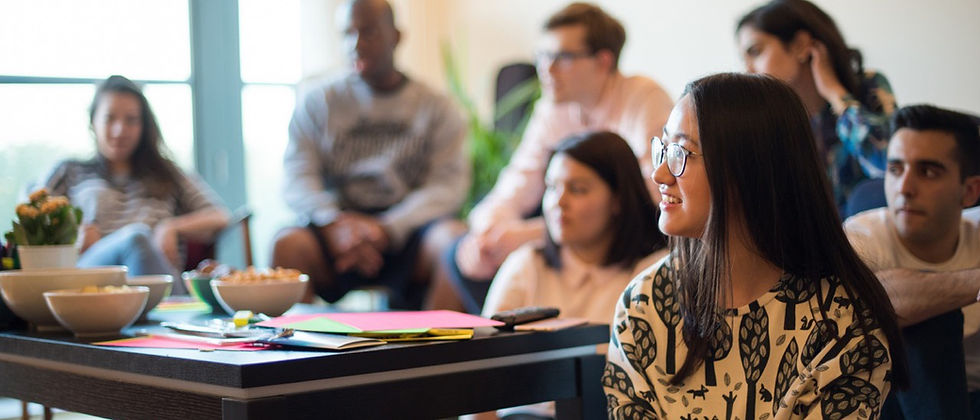The local community is a source of untapped potential
- Oct 20, 2021
- 3 min read
The past two years have challenged many societies across the world in ways that they have not for a lifetime. At the same time, however, we have witnessed evidence of the potential within societies to overcome such challenges. At the heart of these efforts, driving them forwards, have been local communities. Often collaborating across boundaries like faith and culture, communities of all kinds have arisen to offer help to vulnerable members and maintain a spirit of solidarity in trying circumstances.

This latter phenomenon – expressed in such varied ways as spontaneously organised and locally based mutual aid groups, neighbours organising shopping for elderly members, faith groups providing meals for their neighbourhoods, and countless instances of individuals organising zoom calls or socially distanced visits to those who are isolated – is highlighting how important local communities are building a just, flourishing society. This recognition is, in turn, sparking conversations about how best to promote healthy, robust patterns of community life. Despite this, local communities tend to be viewed through the lens of weakness, rather than the capacity which they inherently possess.
Viewing localities through the lens of strength and potentiality, not weakness, could make a significant change to our vision of community. While insights and resources from governmental and national actors are essential, a strength-based framework recognises that progress at the local level is not transposed from outside, but must be driven by constructive sources within. This is not to assume that local communities have all the resources they need, nor is it to trivialise the genuine social and economic challenges many communities face. The point, rather, is that the particular posture adopted is instrumental in creating an environment that empowers those who have insights into their immediate social reality, appreciate cultural dynamics and concerns, are able to identify and navigate existing local networks, and can discern needs and opportunities.
The posture adopted is instrumental in creating an environment that empowers those who have insights into their immediate social reality, appreciate cultural dynamics and concerns, are able to identify and navigate existing local networks, and can discern needs and opportunities.
Such a strength-based approach requires a reimagining who leaders are, and what leadership is. The Baha'i community has come to see the importance of seeing in each person a protagonist of personal and social transformation. In this context, leaders are not necessarily the loudest or most obvious voices. Indeed, it is often voices that have been historically marginalised – youth, women, minorities, and so on – that are most important to the development of a community. And rather than conceiving of leadership solely as speaking on behalf of others, there is a need to identify and cultivate leadership which is concerned with raising capacity in ever-wider circles of people to contribute to the advancement of the community.
Further, for local progress to be sustained in the long-term and hence be truly transformative, care must be exercised not to pit, however subtly, one group against another, or to treat the resolution of local challenges as a transactional bargaining endeavour between different interests. It is clear then that well established agonistic culture of collective deliberation will also need to give way to more inclusive modes. For, ultimately, the sustainability of progress depends upon a widening the circle of participation of those traditionally excluded people from voicing their thoughts. Where this happens, learning and best practice generated at the grassroots can be shared across communities, facilitated by regional or national institutions.
The sustainability of progress depends upon a widening the circle of participation of those traditionally excluded people from voicing their thoughts
The opportunity to not only benefit from, but to contribute one’s share, to the well-being of society should be considered a fundamental right. The local community is unique in that it is the arena in which it is possible for anyone to exercise this right. On issues as varied as the education of the young, the provision of care for the elderly, or the stewardship of the environment, it is at the local level in which individuals are most able to contribute meaningfully to a learning process about how to overcome the many complex challenges society faces.
Originally published on the UKBaha'i Site.














